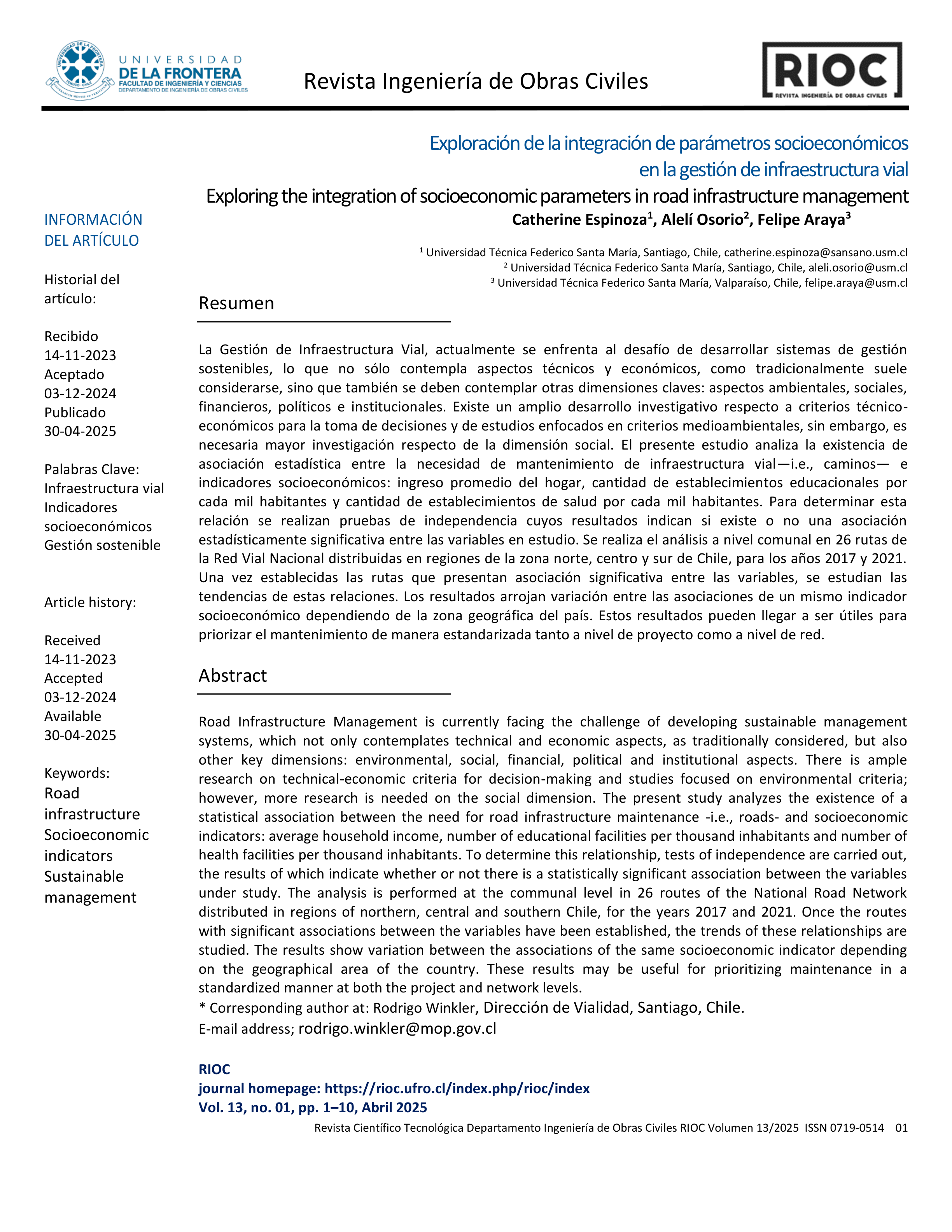Exploring the integration of socioeconomic parameters in road infrastructure management
Keywords:
Road infrastructure, Socioeconomic indicators, Sustainable managementAbstract
Road Infrastructure Management is currently facing the challenge of developing sustainable management systems, which not only contemplates technical and economic aspects, as traditionally considered, but also other key dimensions: environmental, social, financial, political and institutional aspects. There is ample research on technical-economic criteria for decision-making and studies focused on environmental criteria; however, more research is needed on the social dimension. The present study analyzes the existence of a statistical association between the need for road infrastructure maintenance -i.e., roads- and socioeconomic indicators: average household income, number of educational facilities per thousand inhabitants and number of health facilities per thousand inhabitants. To determine this relationship, tests of independence are carried out, the results of which indicate whether or not there is a statistically significant association between the variables under study. The analysis is performed at the communal level in 26 routes of the National Road Network distributed in regions of northern, central and southern Chile, for the years 2017 and 2021. Once the routes with significant associations between the variables have been established, the trends of these relationships are studied. The results show variation between the associations of the same socioeconomic indicator depending on the geographical area of the country. These results may be useful for prioritizing maintenance in a standardized manner at both the project and network levels.
Downloads

Downloads
Published
How to Cite
Issue
Section
License
Copyright (c) 2025 Catherine Espinoza, Alelí Osorio, Felipe Araya

This work is licensed under a Creative Commons Attribution 4.0 International License.
The authors who publish in this journal accept the following conditions:
- The authors retain the copyright and assign to the magazine the right of the first publication, with the work registered with the Creative Commons attribution license, which allows third parties to use the published information whenever they mention the authorship of the work and the First publication in this journal.
- Authors may make other independent and additional contractual arrangements for non-exclusive distribution of the version of the article published in this journal (eg, include it in an institutional repository or publish it in a book) as long as it clearly indicates that the work Was first published in this magazine.
- Authors are encouraged and encouraged to publish their work on the Internet (for example, on institutional or personal pages) before and during the review and publication process, as it can lead to productive exchanges and a greater and faster dissemination of work Published (see The Effect of Open Access).







